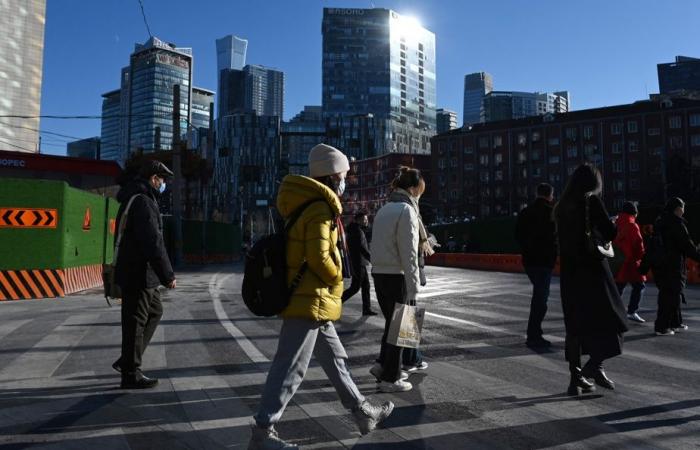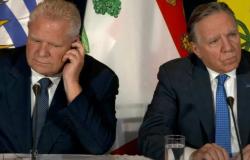(Bangkok) Chinese leaders met this week to develop economic policy for the coming year. They plan, among other things, to increase public spending and relax Beijing’s monetary policy in order to encourage more investment and consumption in the country.
Posted yesterday at 11:58 a.m.
Elaine Kurtenbach
Associated Press
Leaders of the ruling Communist Party concluded their two-day Central Economic Work Conference on Thursday, keeping in mind President-elect Donald Trump’s threats to significantly increase tariffs on imports from of China when he takes office.
Analysts say the plans formulated at the conference – and at a recent meeting of the 24-member Politburo – appear more like a recap of current policy, rather than ambitious new initiatives.
Falling property prices and job losses during the COVID-19 pandemic have discouraged many Chinese from spending as much as they would have in the past, if at all. capable.
According to a report by the official Xinhua News Agency, the leaders agreed this week to “place greater emphasis on ensuring and improving people’s well-being, and giving people a growing sense of fulfilment, happiness and security.
To do this, policies have been established with the aim of preventing people from falling back into poverty, strengthening the health system and expanding care for the elderly, the agency says. It could also include subsidies to families to encourage them to have more children now that the population is declining.
Encourage spending
Leaders also pledged to increase China’s deficit, which has long been capped at 3% of its gross domestic product (GDP), and to do more to encourage consumer spending by matching wage increases to the pace. of economic growth. The government will issue more ultra-long-term bonds to achieve this, state media said but did not give a precise amount.
Domestically, China can afford to do this. Its level of national debt to GDP is around 68%, compared to 250% in Japan and 120% in the United States. Locally, too much debt remains a problem, with many Chinese workers underpaid – and others without wages. Municipal and regional governments have fallen deep into debt after experiencing falling revenues due to the housing crisis and the pandemic. Expenditures continued to increase.
Details of any spending increases could be revealed during the national legislative session in March, analysts say.
Earlier this week, the Politburo approved plans to pursue “moderately accommodative” monetary policies, rather than the cautious stance that had prevailed for the past decade.
The last time China adopted this approach was in the period from 2008 to 2010. The central bank had aggressively eased credit conditions as an antidote to the shocks of the global financial crisis, says Tao Wang of the group UBS bank.
Making borrowing less expensive would make it easier to finance home purchases and other investments as the central bank plays a growing role in keeping markets stable and stimulating the economy.
Expectations of falling interest rates have driven up bond prices. But overall, investors who were hoping for more details on planned policies appeared disappointed by the outcome of this week’s meetings. On Friday, the Shanghai Stock Exchange Composite Index fell 2.0%, while Hong Kong’s Hang Seng plunged 2.1%.






